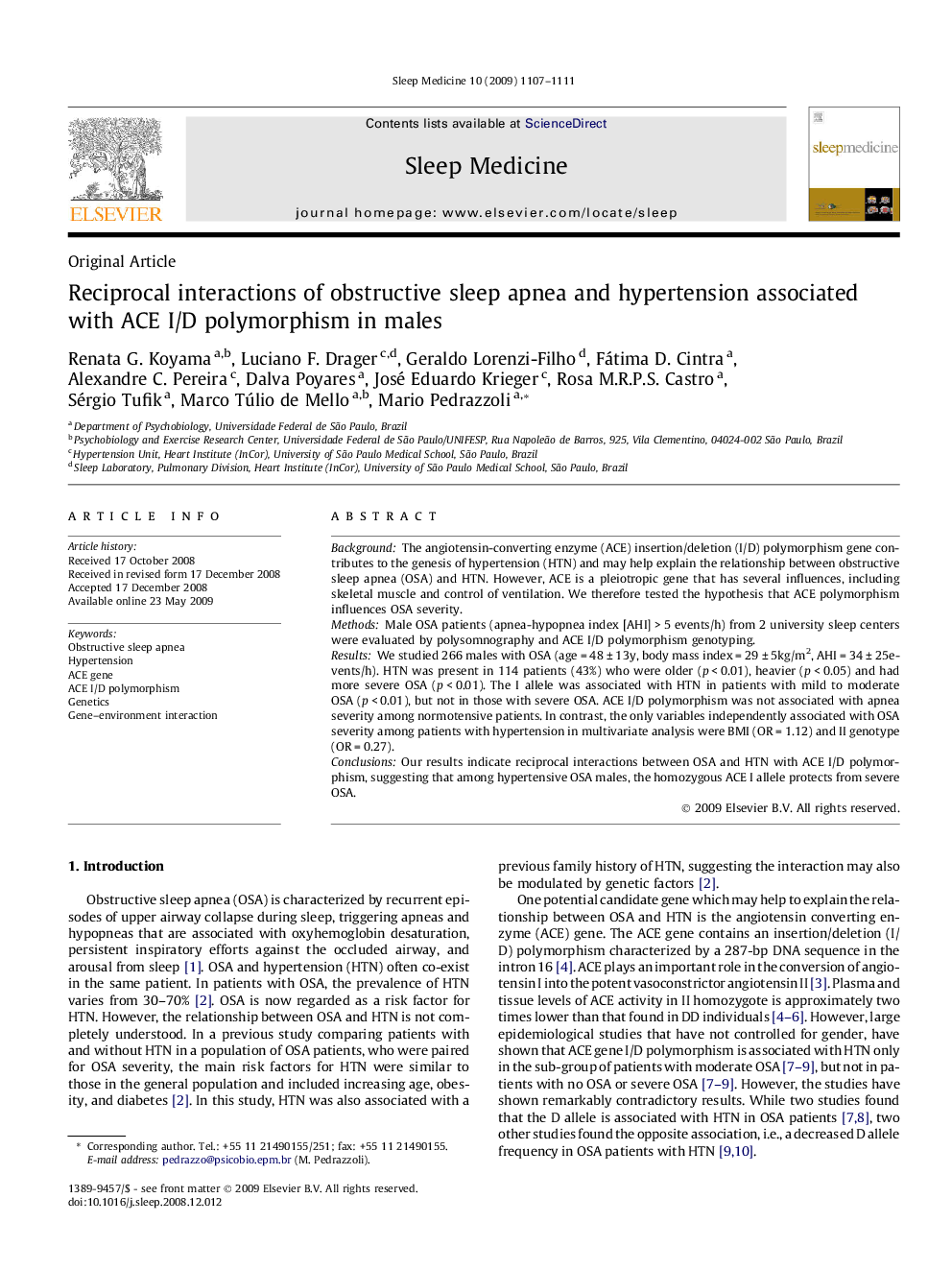| Article ID | Journal | Published Year | Pages | File Type |
|---|---|---|---|---|
| 3177454 | Sleep Medicine | 2009 | 5 Pages |
BackgroundThe angiotensin-converting enzyme (ACE) insertion/deletion (I/D) polymorphism gene contributes to the genesis of hypertension (HTN) and may help explain the relationship between obstructive sleep apnea (OSA) and HTN. However, ACE is a pleiotropic gene that has several influences, including skeletal muscle and control of ventilation. We therefore tested the hypothesis that ACE polymorphism influences OSA severity.MethodsMale OSA patients (apnea-hypopnea index [AHI] > 5 events/h) from 2 university sleep centers were evaluated by polysomnography and ACE I/D polymorphism genotyping.ResultsWe studied 266 males with OSA (age = 48 ± 13y, body mass index = 29 ± 5kg/m2, AHI = 34 ± 25events/h). HTN was present in 114 patients (43%) who were older (p < 0.01), heavier (p < 0.05) and had more severe OSA (p < 0.01). The I allele was associated with HTN in patients with mild to moderate OSA (p < 0.01), but not in those with severe OSA. ACE I/D polymorphism was not associated with apnea severity among normotensive patients. In contrast, the only variables independently associated with OSA severity among patients with hypertension in multivariate analysis were BMI (OR = 1.12) and II genotype (OR = 0.27).ConclusionsOur results indicate reciprocal interactions between OSA and HTN with ACE I/D polymorphism, suggesting that among hypertensive OSA males, the homozygous ACE I allele protects from severe OSA.
